Welcome to a world where space meets style! In this listicle, we present 29 Inspiring Open-Concept Dining and Living Room Layouts that will ignite your creativity and help you transform your home into a harmonious haven. Open-concept living is not just a trend; it’s a design philosophy that promotes fluidity, connection, and an inviting atmosphere. Whether you’re a minimalist enthusiast or a maximalist at heart, our curated selection showcases a diverse range of layouts that blend functionality with aesthetic appeal.
From cozy corners perfect for intimate gatherings to expansive areas ideal for entertaining guests, you’ll discover innovative designs that optimize space while enhancing the overall look of your home. Expect to gain insights into color schemes, furniture arrangements, and decor ideas that make each layout unique.Whether you’re revamping your current space or planning a new one, this list will empower you with inspiration to create a living environment that reflects your lifestyle and taste. Let’s dive in!
Embrace Minimalism: Discover how a clean, open layout with streamlined furniture can create a serene dining and living space that feels spacious and inviting
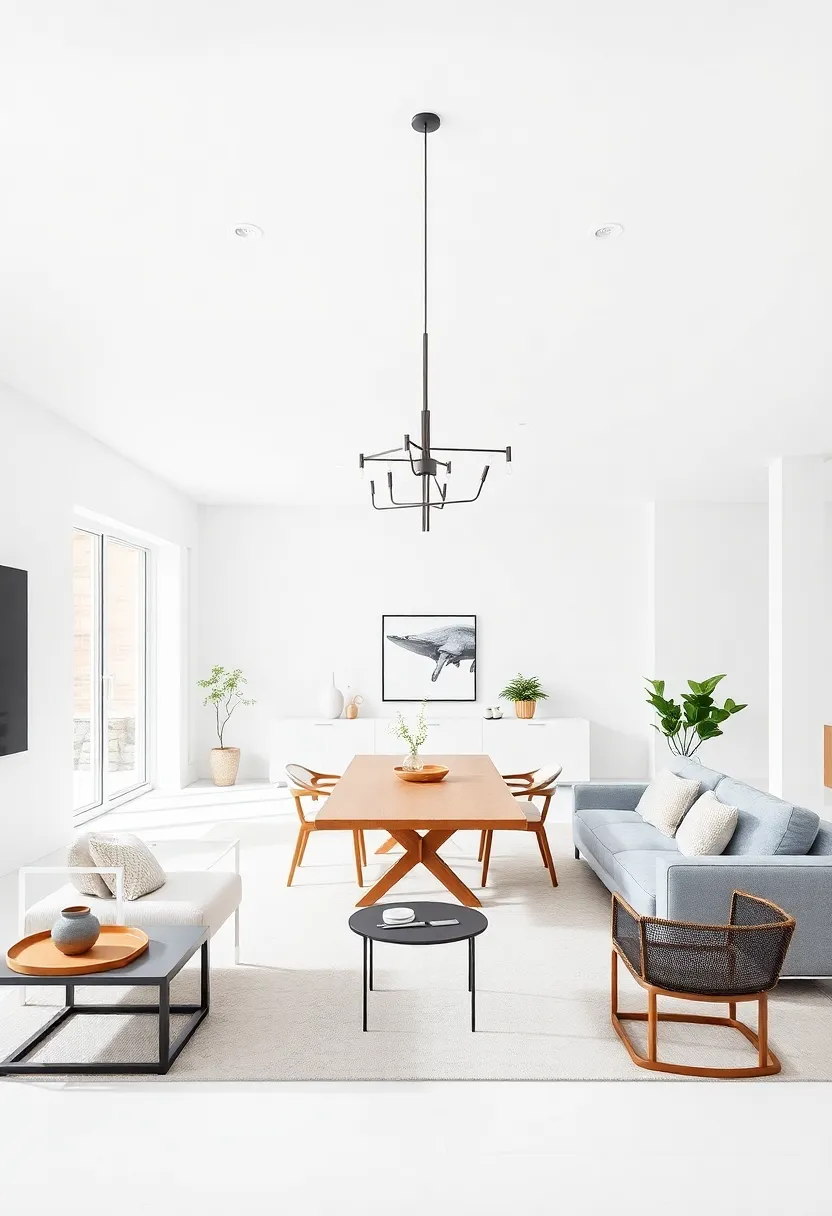
Adopting a minimalist approach in your living and dining areas can transform your space into a sanctuary of calm. The essence of minimalism lies in choosing fewer pieces with greater purpose,which can greatly enhance the open-concept layout.Opt for streamlined furniture such as sleek dining tables and light accent chairs that maintain a sense of openness. The use of soft, neutral color palettes paired with natural materials can infuse warmth without overwhelming the senses. Large windows allowing for natural light will further contribute to an airy feel, making the room appear larger and more inviting.
In addition to selective furniture, consider implementing clever storage solutions that maintain the minimalist ethos. Built-in shelves or hidden cabinets can eliminate clutter while providing needed functionality. A well-placed area rug can define spaces without closing them off, ensuring a cohesive look throughout the open area. The goal is to create a visual flow that invites relaxation and connection,where every piece serves a purpose and every inch is thoughtfully utilized. When every element is intentional, your home will not only look stylish but will also foster a sense of tranquility.
Bold Color Accents: Explore the impact of vibrant accent walls and colorful décor pieces that energize your open concept area, making it both lively and harmonious
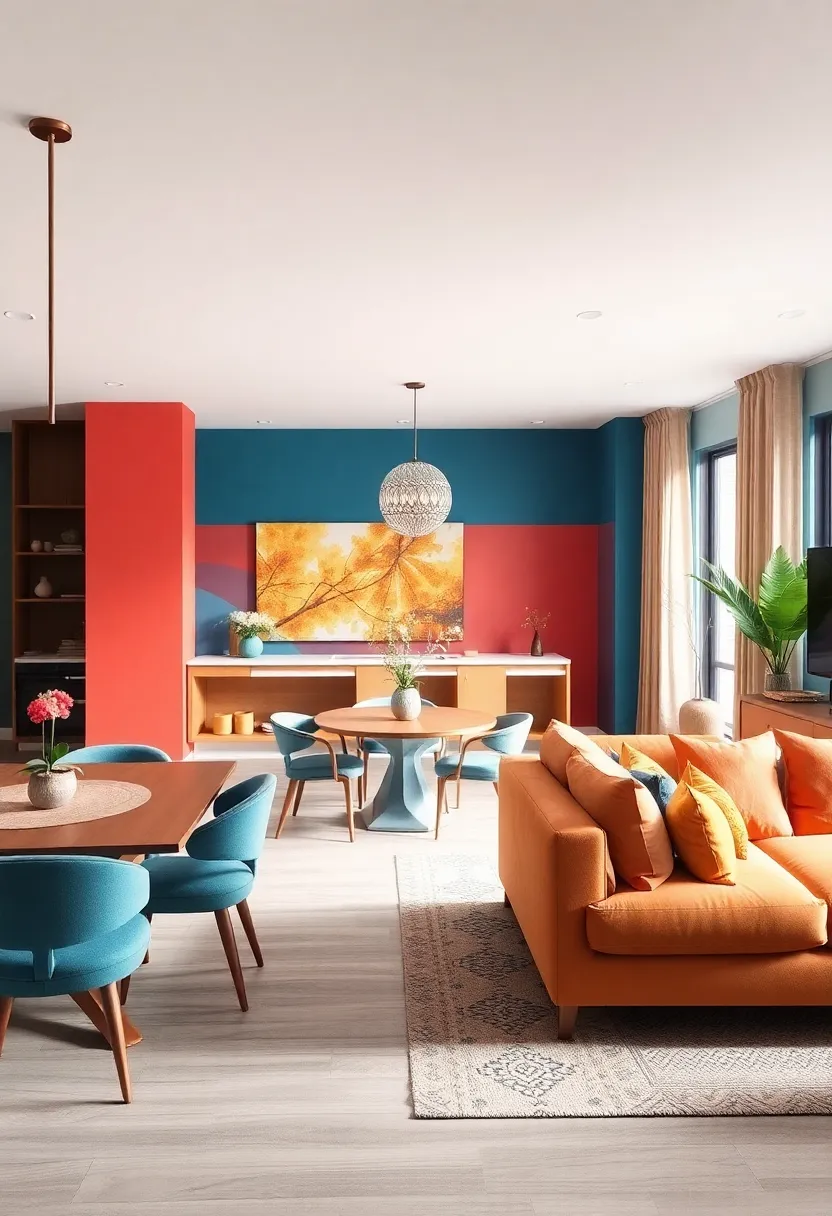
Transforming your space with striking color accents can breathe life into an open-concept area. By incorporating vibrant accent walls or bold décor pieces, you create a dynamic atmosphere that still feels cohesive and balanced. Consider painting one wall in a lively hue, such as turquoise or sunny yellow, to serve as a stunning focal point that captures the essence of your style. These impactful color choices can be further enhanced by introducing complementary elements, such as artwork or textiles in similar shades. Such pairings not only energize the room but also tie different zones together, ensuring they harmonize beautifully.
Colorful décor pieces are a fantastic way to add pops of vibrancy without overwhelming the entire space. Bright throw pillows, artfully arranged vases, and decorative rugs can infuse personality and warmth into your living room and dining areas. For instance, a collection of multicolored ceramic plates displayed on a wall can create a playful atmosphere while inviting conversation. You can also consider incorporating a bold table runner or unique lighting fixtures in eye-catching colors, subtly leading the eye throughout the room. These small yet impactful details evoke a sense of joy and liveliness, making your open-concept layout both inviting and exciting.
Multi-Functional Furniture: Learn about versatile furniture choices that maximize space, such as ottomans that double as storage or dining tables that can be expanded for entertaining guests
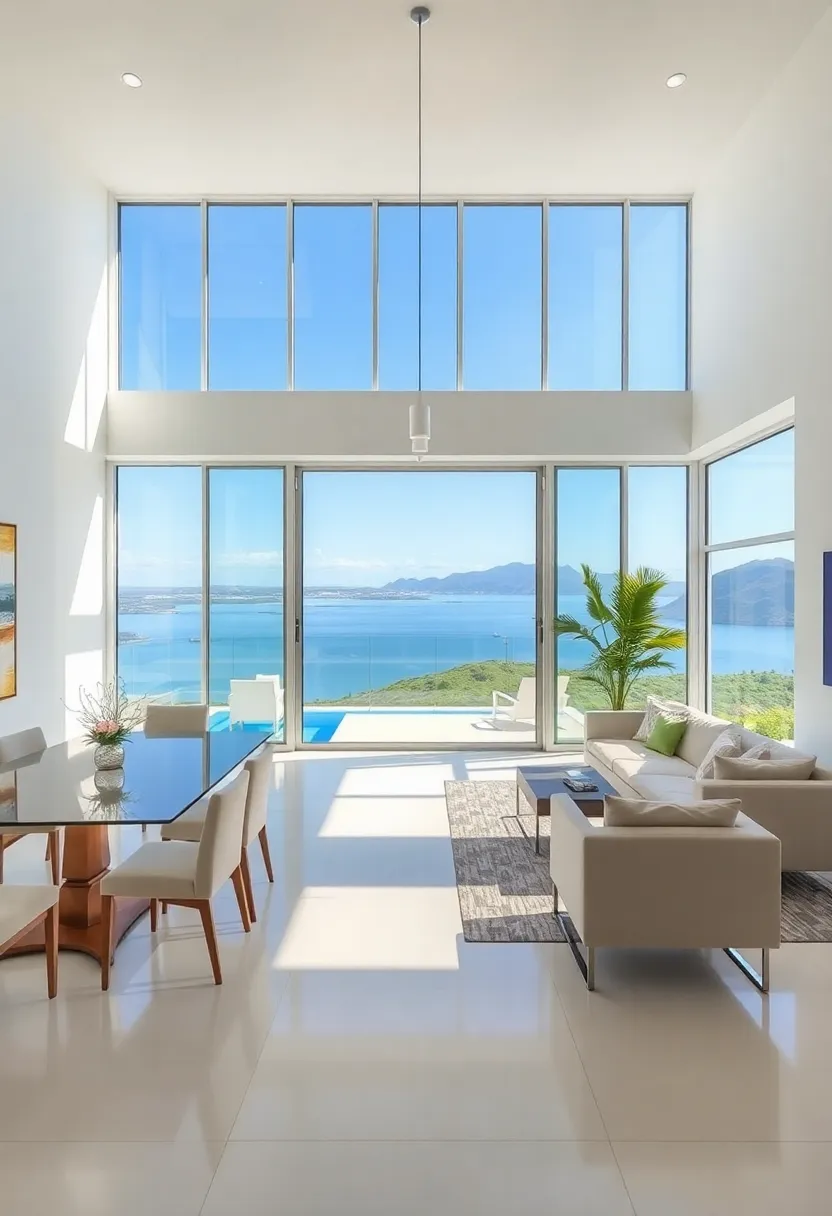
When it comes to maximizing space in an open-concept living and dining area, multi-functional furniture is your best friend. Stylish ottomans that double as storage solutions can help keep your space organized while adding a pop of color or texture.These versatile pieces can effortlessly transform from a footrest to a practical seat during gatherings, ensuring you never run short on seating. Look for options with hidden compartments that can store blankets, games, or books, making them perfect for those cozy movie nights or casual weekend hangouts.
Another incredible choice for compact living is a dining table that can expand for entertaining guests. The beauty of these tables lies in their ability to adapt to your needs—whether you’re hosting an intimate dinner or a larger festivity. Choose tables with built-in leaves or extending mechanisms that blend seamlessly with the design for a polished look. Consider models that incorporate stylish chairs, which can easily tuck away when not in use, ensuring a clutter-free environment. This way, your space not only looks good but functions perfectly for any occasion.
Seamless Transitions: Understand how the right flooring can create a fluid connection between your dining and living rooms, enhancing the cohesion of your open-concept design
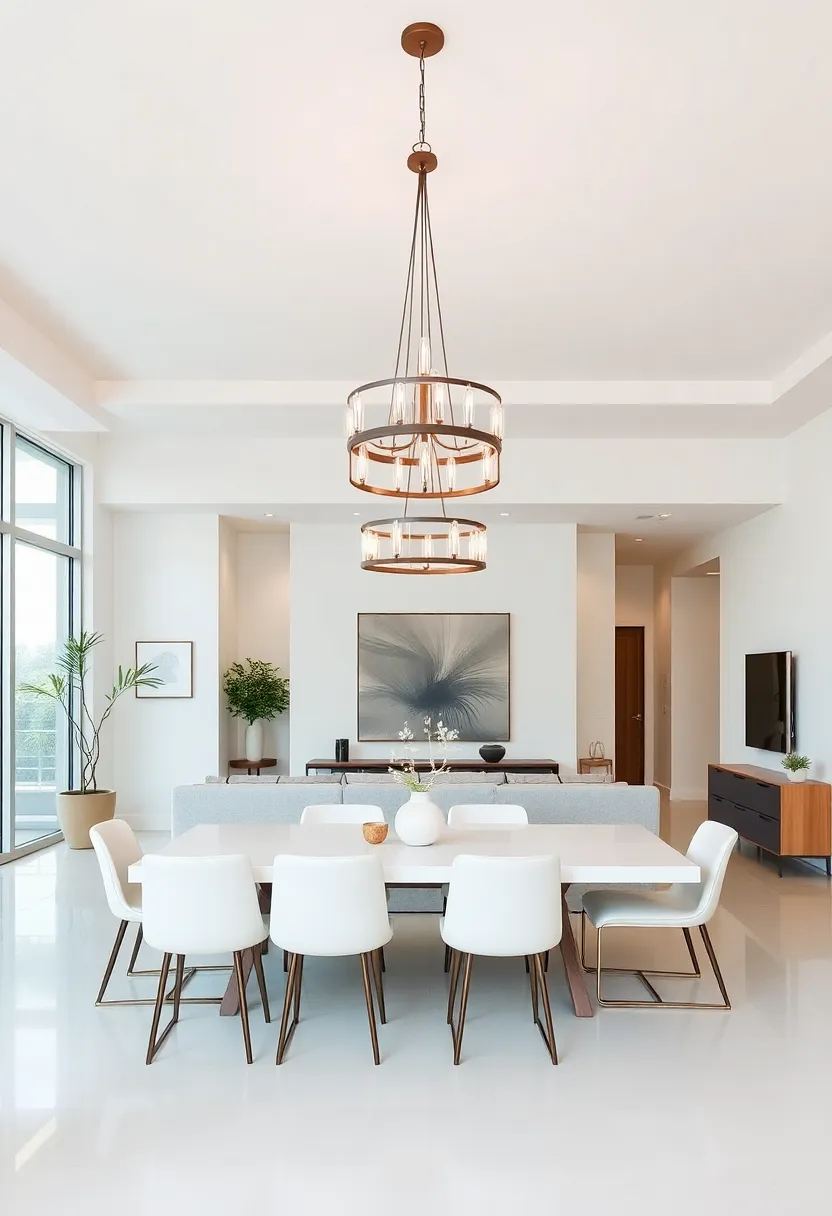
Choosing the right flooring can dramatically enhance the visual flow between your dining and living spaces, contributing to a cohesive and inviting atmosphere. Opt for materials that offer a seamless look, such as hardwood or laminate, which can span both areas without interruption. Additionally,consider using the same finish or color palette,as this can strengthen the sense of unity while allowing each space to feel connected. When transitioning from one area to another, consistency in flooring can also draw the eye naturally, resulting in a elegant and harmonized design. Here are some ideal flooring options:
- Hardwood: Timeless elegance, versatile aesthetic
- Laminates: Cost-effective, easy maintenance
- Luxury Vinyl Plank (LVP): Waterproof, durable
- Tile: Variety of styles, highly resilient
Using area rugs to delineate the spaces further enhances the transitional design while maintaining a cohesive look. Choose rugs that complement the primary flooring material, experimenting with texture and pattern to define zones without visually breaking the flow. By maintaining a consistent color palette and patterns that coordinate with your existing décor, you can enhance the relationship between the dining and living rooms, creating a harmonious environment that is both functional and aesthetically pleasing. Here’s a simple breakdown to guide your choices:
| Flooring Type | Key Benefits | ideal Style |
|---|---|---|
| Hardwood | Durable, classic | Customary to modern |
| Laminates | Affordable, wide range | Contemporary |
| LVP | Waterproof, comfort | Eclectic to casual |
| Tile | Decorative, long-lasting | Rustic or modern |
Layered Lighting: Dive into the power of strategic lighting placement to define spaces, featuring pendant lamps over the dining table and soft floor lamps in the living area
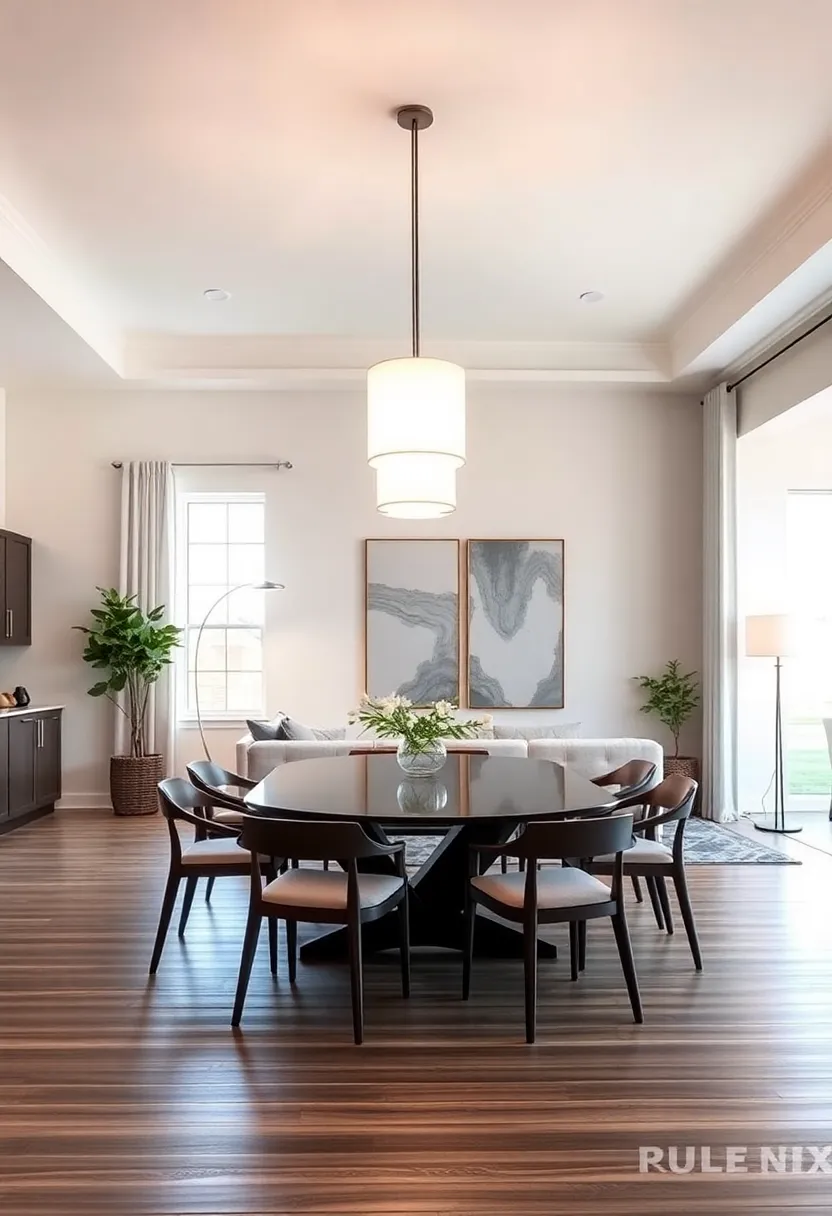
One of the most effective ways to define spaces in an open-concept layout is to employ layered lighting, which adds depth and character to your home. As an example, consider hanging pendant lamps above your dining table. These fixtures serve not just as functional elements but also as statement pieces that draw the eye and create a focal point. Choose styles that complement your decor: elegant glass globes for a modern touch, or rustic metal fixtures for a farmhouse vibe. The key is to ensure that the lighting height is perfect to cast a warm glow without overwhelming diners.
In the adjoining living area, the addition of soft floor lamps can foster a cozy atmosphere conducive to relaxation and conversation. Place these lamps strategically in corners or beside your favorite reading chair to create an inviting glow that invites guests to unwind. Look for designs with adjustable brightness to accommodate different moods and activities, enhancing the overall ambiance. By combining various lighting sources—overhead fixtures, table lamps, and floor lamps—you can effortlessly delineate the dining area from the living space while orchestrating a harmonious flow throughout your home.
Textural Variety: Highlight the beauty of mixing textures—from plush rugs to sleek leather sofas—creating tactile interest in your open plan without overwhelming the senses
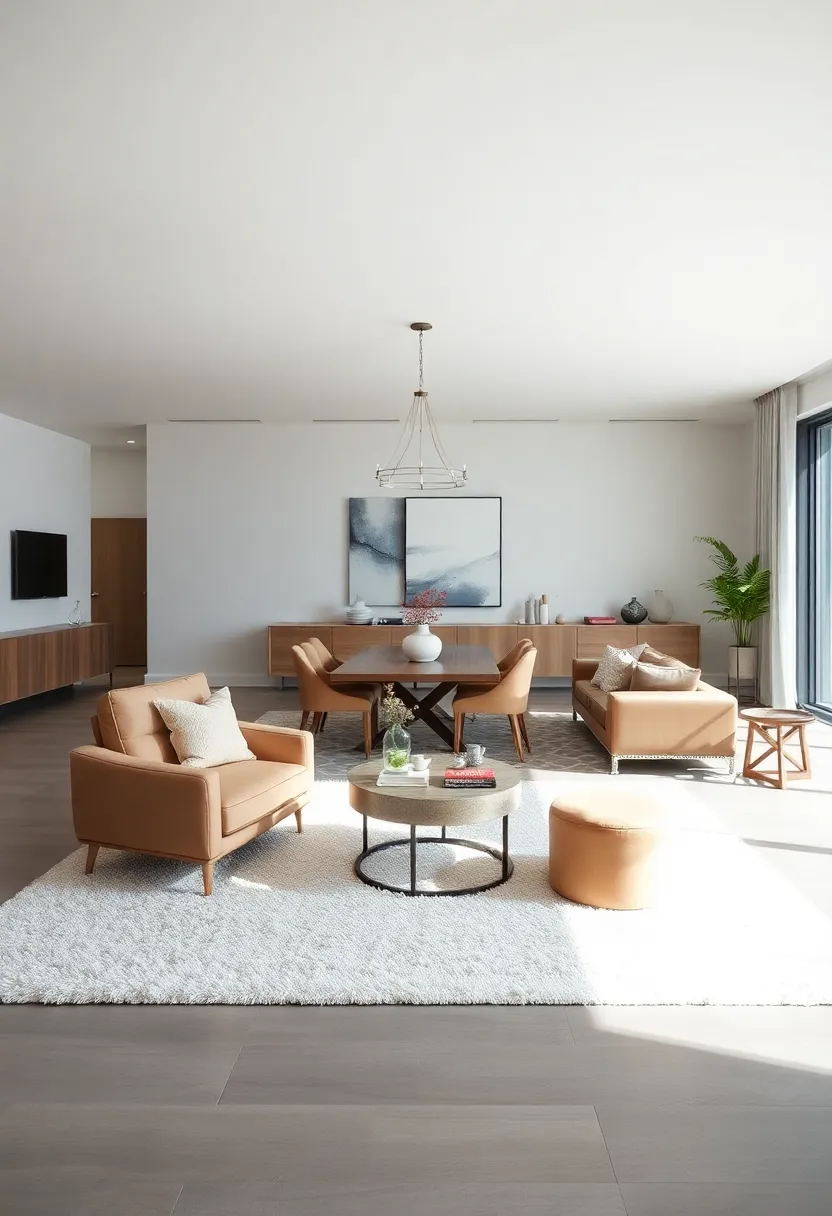
In an open-plan layout, the interplay of different textures can create an inviting and dynamic space that captivates the senses.Consider incorporating plush rugs that offer a warm, cozy contrast to sleek leather sofas, providing an unexpected yet delightful touch underfoot. Mixing materials such as woven baskets, silk cushions, and metal fixtures enhances the visual narrative, allowing each element to shine without overwhelming the overall aesthetic. The key is in the balance; choose a few statement pieces that complement rather than compete with each other, creating a harmonious dialog across your area.
To further amplify textural interest, layer various fabrics and finishes throughout your design scheme. Introduce velvet curtains that gently filter light and add depth,alongside natural wood accents that bring warmth and authenticity. Pairing ceramic vases with glass decor items adds an element of sophistication, while strategically placed textured wallpapers can serve as a stunning backdrop without dominating the scene. Here’s a quick reference table for some top texture pairings to consider:
| texture Pairing | Effect |
|---|---|
| Plush Rug & Leather sofa | Warmth & Comfort |
| Velvet Curtains & Wooden Accents | Luxury & Natural Feel |
| Woven Baskets & Sleek Metal Fixtures | Texture Contrast & Elegance |
nature-Inspired Elements: Incorporate greenery through potted plants or hanging gardens, making your space feel more vibrant and connected to the outdoors
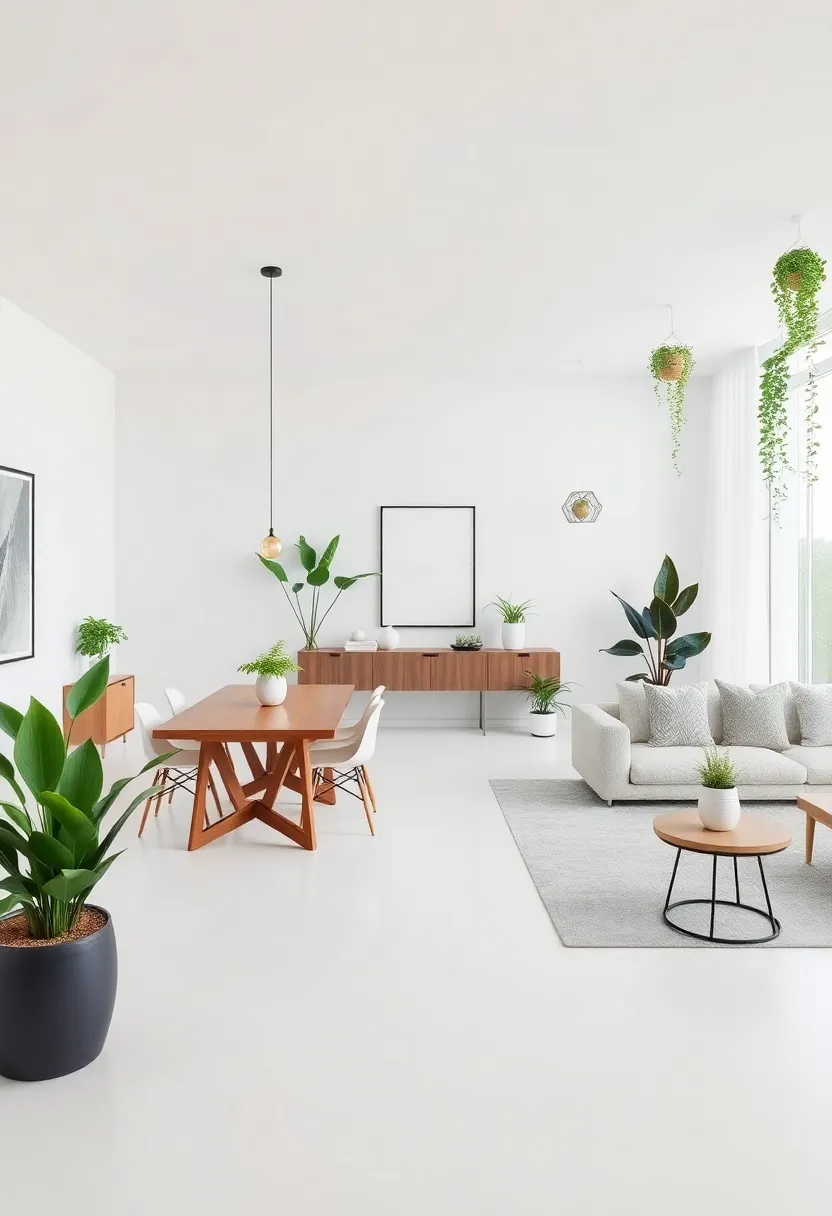
Transform your space into a serene oasis by introducing a variety of potted plants that breathe life into your open-concept living and dining areas. Use large leaf tropical plants to create a stunning focal point, or group smaller succulents on shelves and side tables for a touch of green without overwhelming the space. Consider unique ceramic pots that complement your decor style—from sleek,modern designs to rustic,earthy finishes. Additionally, hanging gardens can be an eye-catching feature that draws the eye upward, enhancing the room’s vertical space.this method allows you to play with layers and textures while providing a greenery backdrop that softens sharp angles and harsh lines.
By thoughtfully placing greenery,you not only brighten the atmosphere but also improve air quality,making your home a healthier haven. Consider incorporating these strategic elements:
- Wall-mounted planters: Perfect for small spaces, they add dimension without taking up floor area.
- Trailing vines: These can cascade from high shelves or hang in stunning macramé hangers, creating a relaxed ambiance.
- Herb gardens: A compact solution for the kitchen area, offering both decor and functionality for cooking enthusiasts.
Artistic Dividers: Experiment with decorative screens or bookshelves that maintain an open feel while subtly defining different areas within the room
Decorative screens and bookshelves are not just functional pieces—they’re versatile tools for redefining spaces within an open-concept layout. These artistic dividers can simultaneously enhance aesthetics and maintain an airy feel, allowing for visual separation without the heaviness of four walls. Consider opting for folding screens adorned with vibrant patterns or textures that echo the room’s design theme. Alternatively,an open-shelved bookshelf can hold your favorite reads while serving as a subtle barrier between the dining and living areas.Not only do these dividers help delineate the space, but they also create opportunities to showcase decorative items, plants, and personal artifacts that reflect your style.
When choosing materials and shapes,explore a range that complements your existing decor. Look for macramé or wood options that offer a rustic touch, or go for sleek metal designs for a more modern vibe. Here are some ideas to consider when styling your artistic dividers:
- Layered Textures: Combine materials like wood and metal to add depth.
- Color Cohesion: Select colors that match or contrast with your walls to create emphasis.
- Functionality: Opt for pieces that can also serve as storage or display units.
- Nature elements: Introduce greenery or terrariums on shelves to breathe life into the space.
Statement Furniture Pieces: Showcase a standout sofa or a unique dining table as the focal point of your space,drawing the eye and offering a conversation starter
In an open-concept living and dining space,a standout sofa can be more than just a seating solution; it can be an artistic expression. Imagine a bold, mid-century modern sofa in a vibrant jewel tone that commands attention and invites conversation. Its sleek lines and plush cushions create an inviting area for lounging, while its striking color draws the eye, transforming the room into a visual masterpiece. To complement this centerpiece, consider adding textured throw pillows or a cozy blanket, enhancing both comfort and style.
Equally captivating can be a unique dining table that serves as the heart of the home. Consider a reclaimed wood table paired with mismatched chairs, creating an eclectic yet warm atmosphere. The character of the wood tells a story, making it a perfect conversation starter over meals and gatherings. To elevate the aesthetic, you might add an eye-catching centerpiece, like a bold vase filled with fresh flowers or a quirky sculpture that resonates with your personal style, ensuring that your dining area is just as much about visual allure as it is about functionality.
Minimal Clutter: Promote the importance of decluttering to maintain an airy open-concept layout that allows for easy movement and a sense of calm
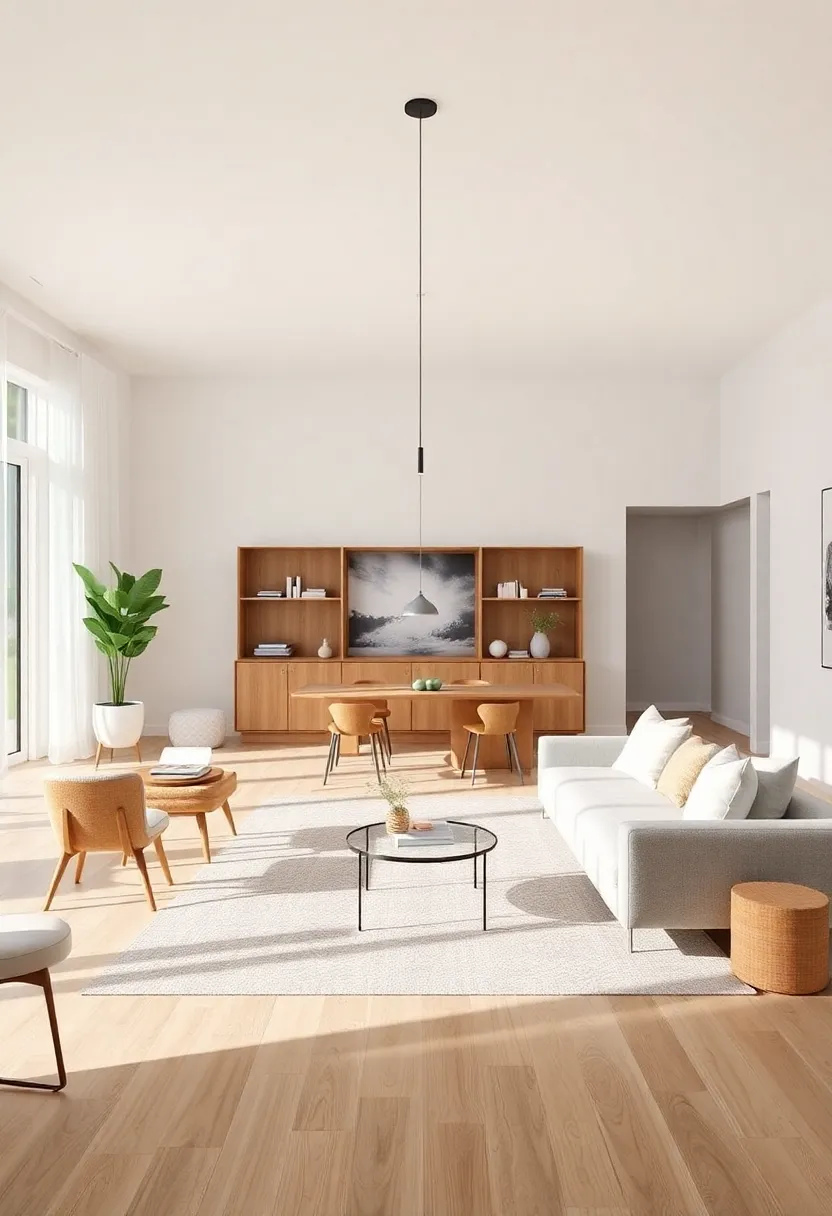
Creating a serene environment in your open-concept space begins with the principle of minimalism. By reducing clutter,you allow natural light to flow freely and enable more straightforward movement throughout your home. Embracing negative space adds a sense of sophistication and calm, as it prevents your living and dining areas from feeling cramped. Think about incorporating only essential pieces that not only offer functionality but also contribute to the aesthetic of your space. this can include streamlined furniture, strategically placed decor, and unobtrusive storage solutions.
To further enhance the tranquility of an open layout, consider the following strategies:
- Functional Furniture: Opt for multi-purpose items, such as ottomans that double as storage.
- Designated Zones: Use rugs to demarcate spaces while keeping pathways clear and inviting.
- Declutter Regularly: Set a schedule for routine cleaning to eliminate items that no longer serve a purpose.
- Vertical Storage: Utilize wall-mounted shelves to keep floors clear and create an airy feel.
| Item Type | Effect on Space |
|---|---|
| Overstuffed Furniture | Clutters visually and restricts movement |
| Minimal Artwork | Enhances focal points without overwhelming |
| Clear Glass Accents | creates the illusion of openness |
| Smart Storage Solutions | Maintains a tidy look without sacrificing style |
Family-Centric Design: Examine layouts that foster family interactions, making it easy to cook, dine, and relax together while enjoying an unobstructed flow
Designing spaces that encourage family interaction is essential in today’s world, where quality time ofen seems elusive. An open layout that incorporates the kitchen, dining area, and living room can significantly enhance family bonding.Consider island seating in the kitchen, which not only serves as a convenient space for meal prep but also allows for casual conversation during cooking. Multi-functional furniture,like a large coffee table that doubles as a storage unit or game area,can create an inviting atmosphere where families can gather to relax,play,or share a meal together. Additionally,large windows or sliding glass doors that open to outdoor spaces can blend indoor and outdoor living,promoting a harmonious flow of activities.
| Design Feature | Family Benefits |
|---|---|
| Open Kitchen Layout | encourages cooking together and eliminates barriers to conversation. |
| Integrated Dining Areas | Makes mealtime a communal experience, strengthening family bonds. |
| Flexible Furniture | Adapts to the family’s needs, from family game nights to cozy gatherings. |
To further enhance family interactions, consider zoning your open-concept space. By creating distinct yet connected areas for cooking, dining, and lounging, you can cater to different activities while maintaining a sense of togetherness. Use area rugs or subtle color changes to delineate these spaces, making them inviting while still fostering openness. Outdoor spaces can extend this design principle, featuring decks or patios adjacent to the living area, encouraging families to spend time outside together. Emphasizing an uninterrupted flow in your design reinforces a lifestyle where family interactions are the norm, making every moment spent at home richer and more fulfilling.
Open Shelving Wonders: Unveil the charm of open shelving units that display décor and keep essentials accessible, encouraging a layout that’s both stylish and practical
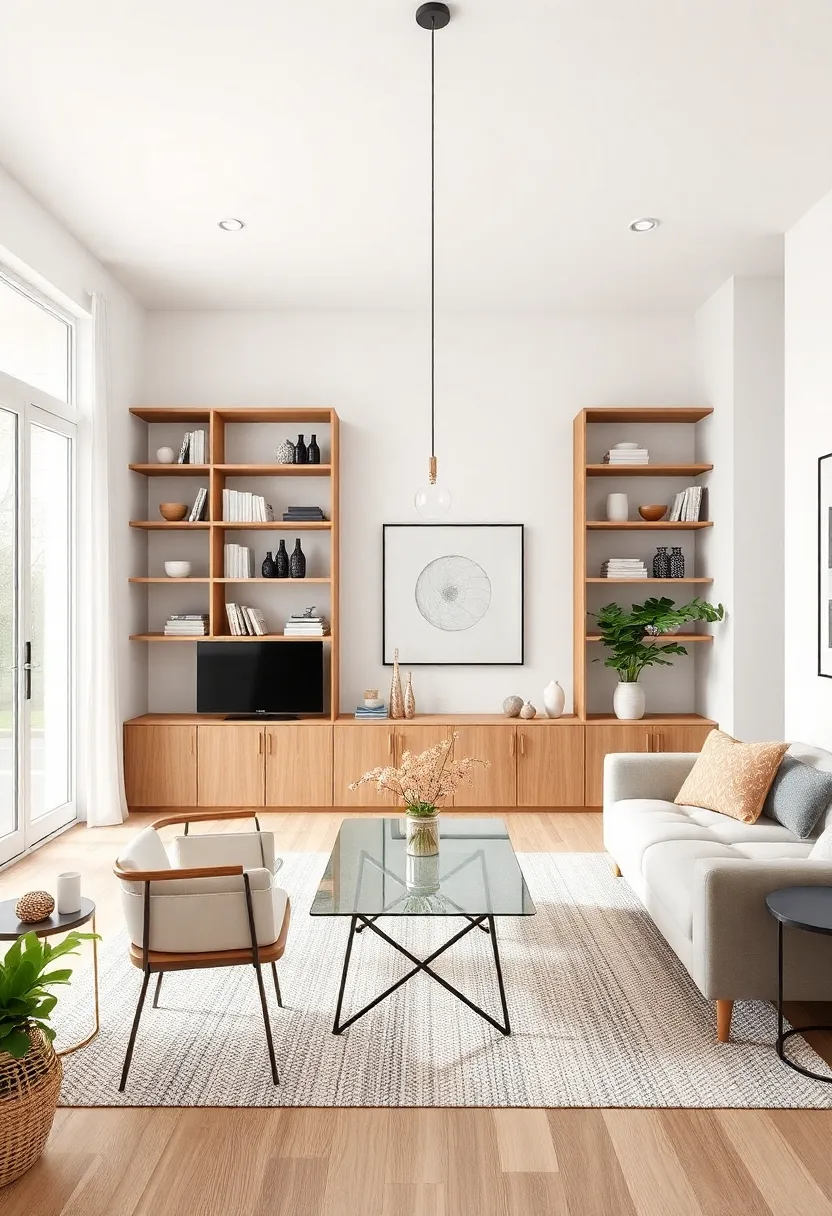
Open shelving units are more than just functional storage solutions; they serve as a canvas for your creativity, helping you curate moments of beauty within your space. by choosing an open shelving design, you can display your favorite décor items, such as hand-crafted ceramics, colorful cookbooks, or framed photographs, transforming your walls into a gallery of personal expression. The accessibility of these shelves encourages you to keep your essentials at hand while also inviting you to switch up the decor based on seasons or trends, making your home feel fresh and alive.
These units also foster a sense of community and conversation. Guests can easily admire your cherished items and perhaps even strike up discussions about their origins or meaning. To maximize the charm of open shelving, consider using a mix of materials and textures, like pairing wood with metal brackets or glass to create visual interest. Curate your display with an intentional eye by incorporating plants, books, and art pieces in a thoughtful arrangement. Check out the table below for some design ideas on how to style your open shelving:
| Style Element | Ideas |
|---|---|
| Plants | Incorporate succulents, herbs, or trailing vines for natural appeal. |
| Books | Stack horizontally or vertically for varied heights and interests. |
| Artwork | Add framed pieces or canvas prints to inject personality. |
| Storage Baskets | Use decorative baskets to hide clutter while keeping it stylish. |
Cozy Nooks: Explore how to carve out intimate corners in your open space—like a reading nook or breakfast bar—while maintaining the overall openness
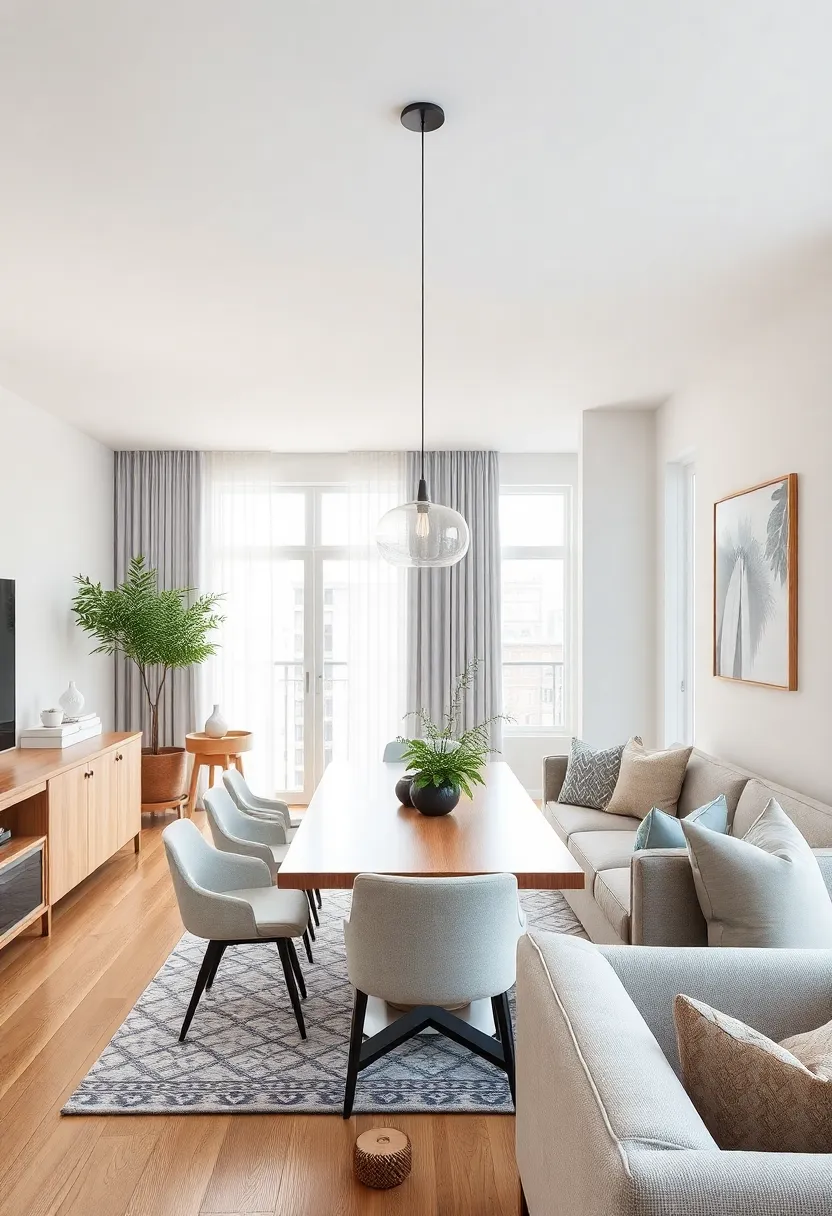
Creating intimate corners in an open space can be both an art and a science. Consider incorporating multifunctional furniture that can definitely help define these cozy nooks without sacrificing the expansive feel of your living area. A small, circular breakfast bar with stools can act as a subtle division between the kitchen and the living room, inviting leisurely mornings without walling off the space.Pair it with a compact bookshelf that doubles as a room divider, allowing you to build a serene reading nook adorned with cushions and soft throws, perfect for curling up with your favorite novel. Use layered lighting—like a pendant lamp above the bar and warm wall sconces for the reading corner—to create an inviting ambiance that draws people in.
Lastly, use textiles strategically to delineate these intimate areas while retaining openness. Fluffy rugs can anchor a reading nook, while a bright tablecloth can transform an ordinary breakfast bar into a charming spot for coffee and conversation. By incorporating natural elements like plants or a trellis with climbing vines as a backdrop, you create a sense of enclosure that feels fresh and inviting. Don’t forget the importance of color; soft hues can visually separate spaces while keeping the overall scheme cohesive. With a little creativity, even the largest of layouts can house cozy retreats that make your home feel warm and welcoming.
Contrast and Complement: Discover the art of contrasting colors and styles for furniture and décor that beautifully enhance the open layout without clashing
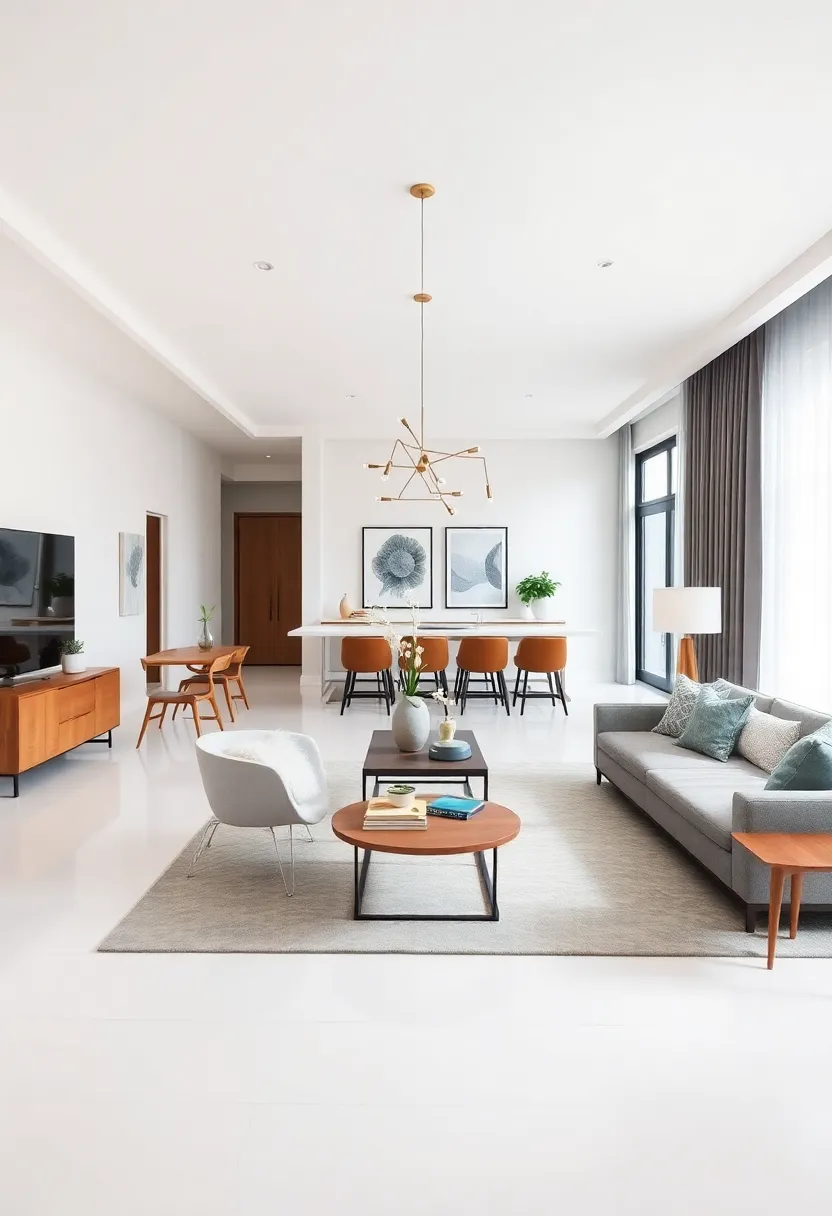
Achieving a harmonious blend of colors and styles in an open-concept space can elevate the overall aesthetic while maintaining the necessary flow between areas. Focus on layering contrasting elements that complement rather than compete. Such as, pair a sleek, modern glass dining table with rustic wooden chairs for a striking juxtaposition. Introducing plush textiles like a velvet sofa alongside minimalist metal accents can create an engaging dialogue between different design languages. Consider utilizing a color palette that incorporates both bold and neutral tones to ground the space, allowing for playful pops of color in decorative pillows or wall art.
incorporating variations in texture can also add depth and interest to the room. Select a velvet or wool area rug to soften the space underneath a sturdy industrial-style coffee table. When hanging artwork,create a simple color-coordinated gallery wall that ties together aspects of both the dining and living areas,drawing the eye throughout the space. Below is a concise visual guide to contrasting styles and colors:
| Style Element | Contrast Example | Complement Example |
|---|---|---|
| Seating | metal bar stools with a wooden kitchen island | Cozy armchairs in pastel tones with a dark wood coffee table |
| Lighting | Chic industrial pendant lights over a traditional dining table | Contemporary floor lamp next to a vintage side table |
| Accent Pieces | Geometric ceramic vases on a rustic shelf | Bright artwork against a muted feature wall |
Functionality Meets Aesthetics: Find inspiration in spaces where practical aspects—like storage solutions—are cleverly disguised as elegant design features
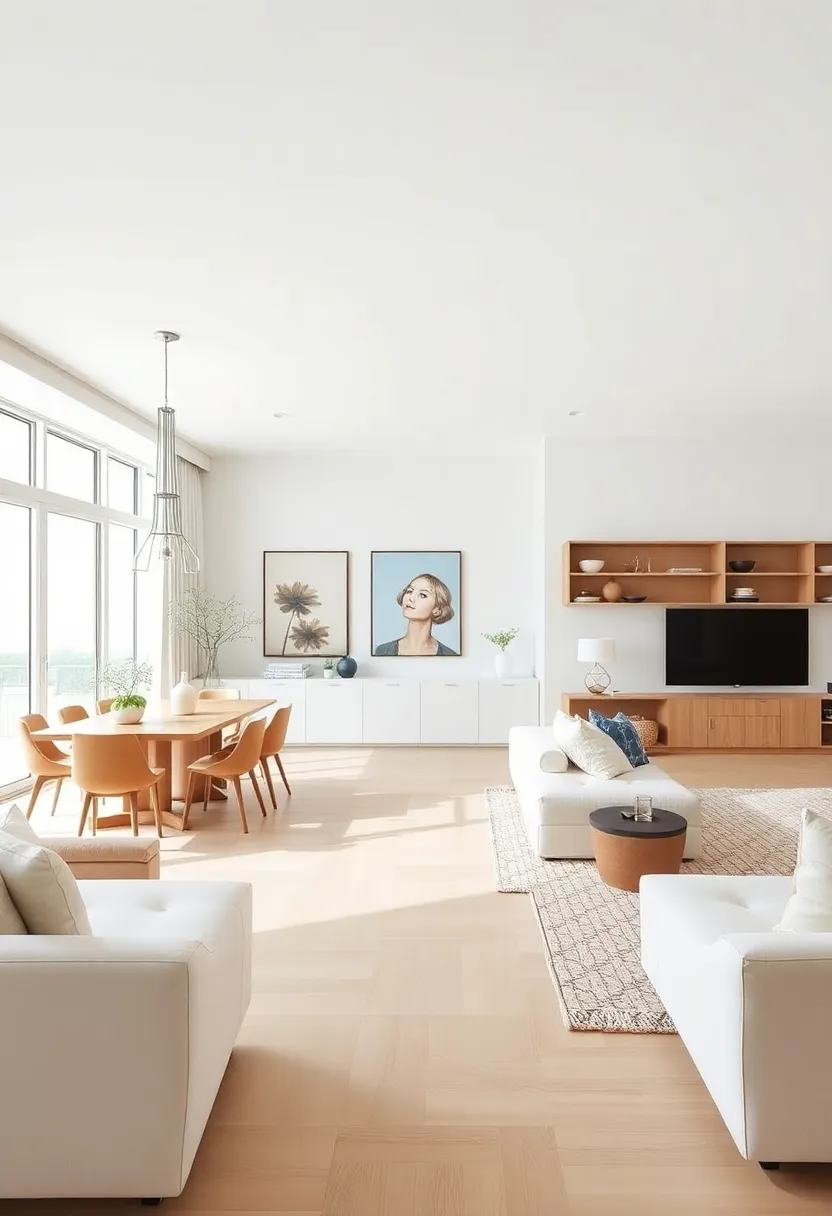
In the heart of modern homes, the blend of practicality and beauty is frequently enough showcased through innovative design elements that elevate the standard living space. Imagine a sleek, built-in bookshelf that not only serves as a functional storage solution for your beloved tomes but also acts as a striking room divider, elegantly delineating the dining area from the living room. Hidden compartments nestle away kitchenware or dining essentials, ensuring a clutter-free environment. Another clever idea is the use of multi-functional furniture, such as a coffee table with integrated storage or an ottoman that doubles as a seat and a place to stash blankets, creating a harmonious synergy between style and utility.
Moreover, enhancing visual appeal while maintaining functionality can be achieved through thoughtful color palettes and textures. Use light-hued cabinetry that complements the open-concept layout; it reflects natural light and creates an illusion of spaciousness. Incorporate natural materials like wood and stone in an understated way,providing warmth and elegance to the combined space. Modular furniture systems can also be transformed effortlessly to meet varying needs, whether it be hosting large gatherings or intimate dinners. such elements demonstrate how aesthetic considerations harmoniously unite with everyday functionality, crafting a home that feels both welcoming and sophisticated.
Cultural Accents: Embrace global influences in your décor to infuse character and warmth into your open-concept living and dining areas
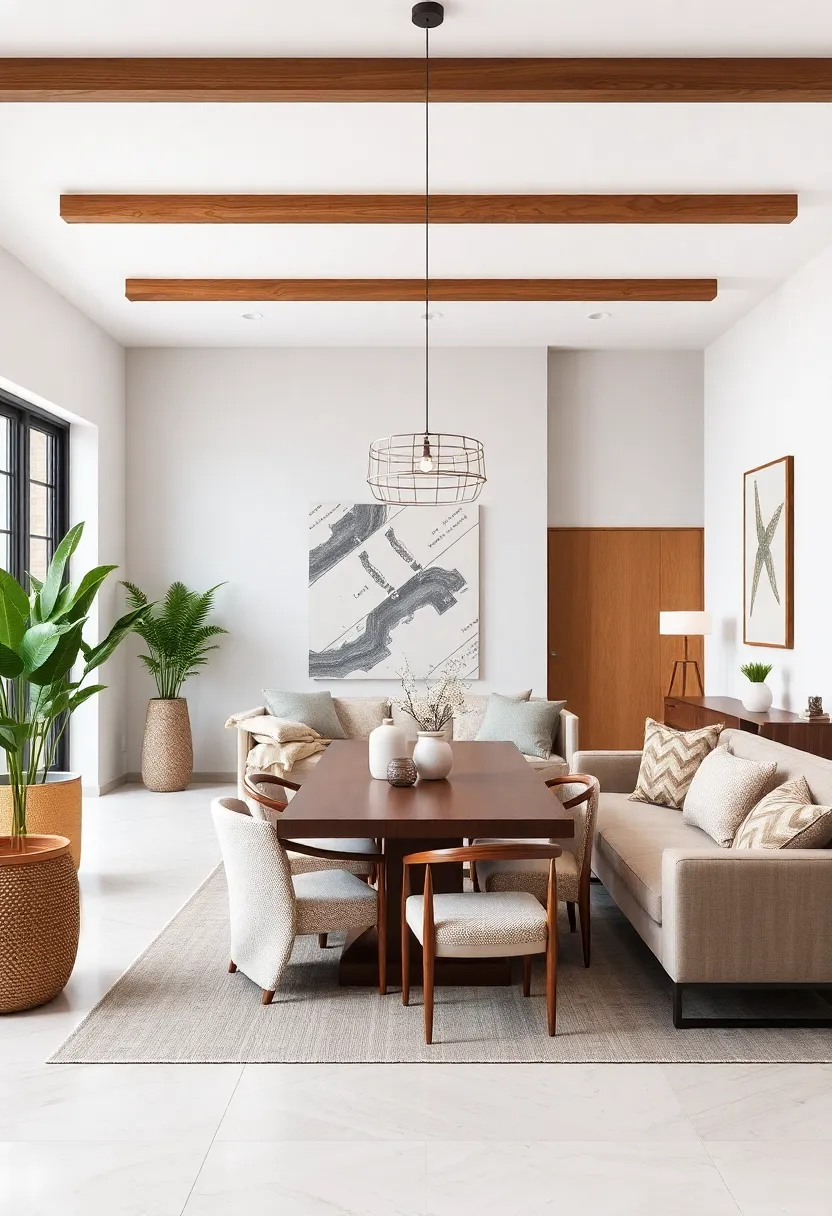
Integrating cultural accents into your open-concept spaces can create a rich tapestry of warmth and personality. Consider adding textiles from around the world, such as a vibrant Moroccan rug or a hand-stitched Kantha throw from India. Layering these textiles can instantly add depth to your décor,while a few carefully selected art pieces can serve as conversation starters. Look for traditional crafts, like handcrafted pottery from Mexico or vivid paintings from Africa, to give your space an authentic feel. Remember, it’s all about blending these accents seamlessly into your existing décor to create a cohesive yet eclectic atmosphere.
Furniture plays a pivotal role in showcasing global influences. Opt for a bohemian-style coffee table made of reclaimed wood, which carries a story from its origin. Combine this with seating like rattan chairs, reminiscent of tropical islands, to invite comfort and relaxation. Don’t forget to add greenery with plants native to different climates, such as a palm tree or a snake plant, enhancing not only the aesthetics but also the air quality. For finishing touches, explore lighting options like ornate lanterns from the Middle East or intricate ceiling fixtures from Southeast Asia, ensuring that every corner radiates an inviting warmth and charm.
Harmonious Flow: Discuss the significance of a logical flow from room to room, utilizing pathways that naturally guide residents and guests through the space
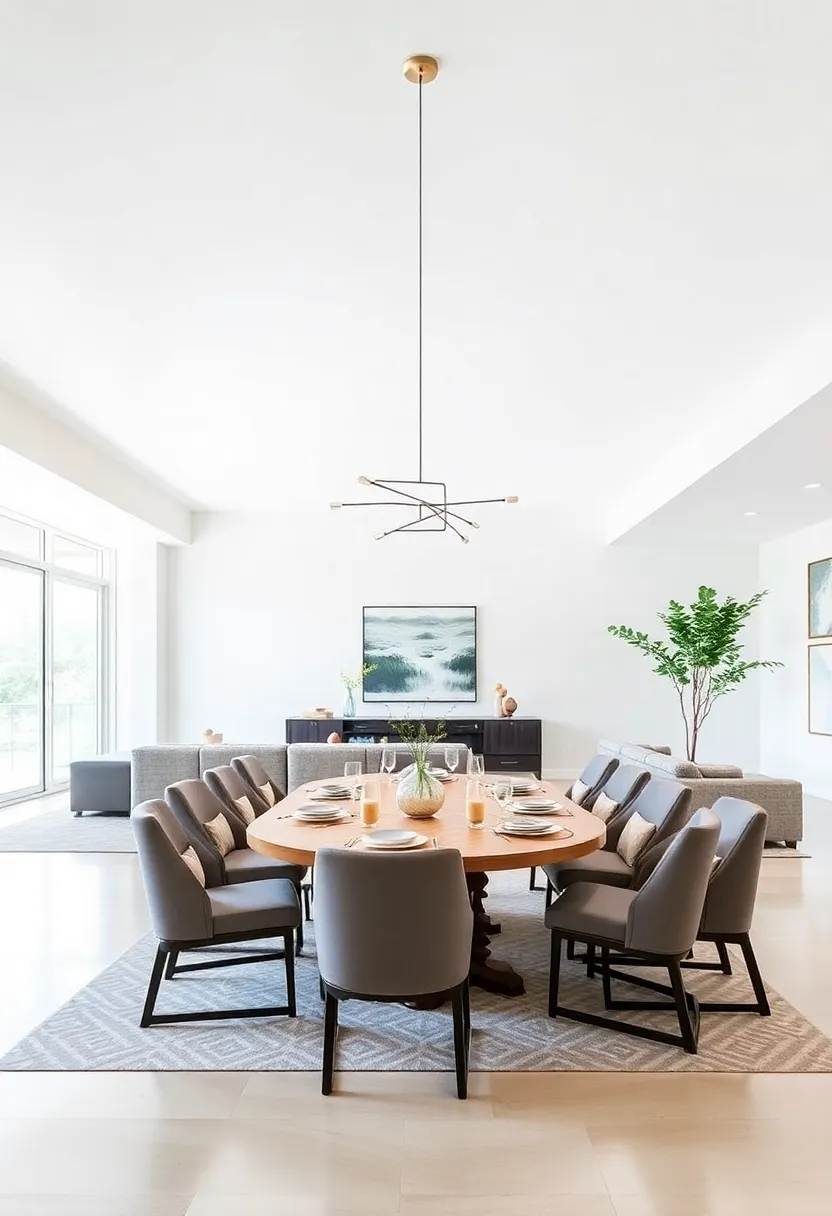
Creating a seamless flow from one room to another is essential for any open-concept space,as it enhances both functionality and aesthetics.A thoughtfully designed pathway allows residents and guests to navigate the home effortlessly, transforming the experience of moving from the living area to the dining space. Consider incorporating specific elements that promote this harmony, such as:
- Clear Sight Lines: Strategically position furniture to maintain visual connections, making it easier to travel from one area to another.
- Consistent Flooring: Use similar flooring materials or transitions to tie spaces together,creating a unified look that encourages movement.
- Color Cohesion: A consistent color palette across the spaces can evoke a feeling of continuity, making each transition feel like a natural progression.
Additionally, the logical arrangement of furniture and decor can guide movement in a way that feels fluid rather than forced. Elements like designated focal points should be introduced to establish direction, such as:
| Focal Point | Purpose |
|---|---|
| Statement Artwork | Draws the eye and creates a natural pause, directing guests towards the next area. |
| Open Passages | Encourages fluid transition between spaces, avoiding obstacles that coudl disrupt flow. |
| Multi-functional furniture | Supports various activities and promotes ease of movement without clutter. |
Customizable Spaces: Highlight adaptable layouts that can be easily transitioned for different occasions, accommodating both casual gatherings and formal dinners
In the world of open-concept living, the beauty of customizable spaces lies in their ability to morph seamlessly from one gathering style to another. Imagine having movable furniture that effortlessly shifts from laid-back lounge seating to an elegant dining arrangement in minutes. By incorporating elements like modular sofas, extendable dining tables, and stackable chairs, your home can transition fluidly between intimate family dinners and festive soirées. The clever use of area rugs can also define spaces, allowing for a cozy feel during casual get-togethers while drawing attention to a formal dining setting when the need arises.
To enhance adaptability even further, consider incorporating decorative partitions or sliding screens to create separate zones without losing the essence of an open layout.These can definitely help maintain a sense of intimacy during smaller gatherings while ensuring the space remains functional for larger events. By embracing a color palette that is both warm and inviting for casual gatherings yet sophisticated for more formal occasions, you can unify the aesthetics.Additionally, strategic lighting options, such as dimmable fixtures or accent lights, can dramatically change the ambiance and ensure your adaptable layouts are not just practical, but also visually stunning for every occasion.
The Power of Mirrors: Utilize mirrors strategically to reflect light and create a sense of depth,making both the dining and living areas feel larger and airier
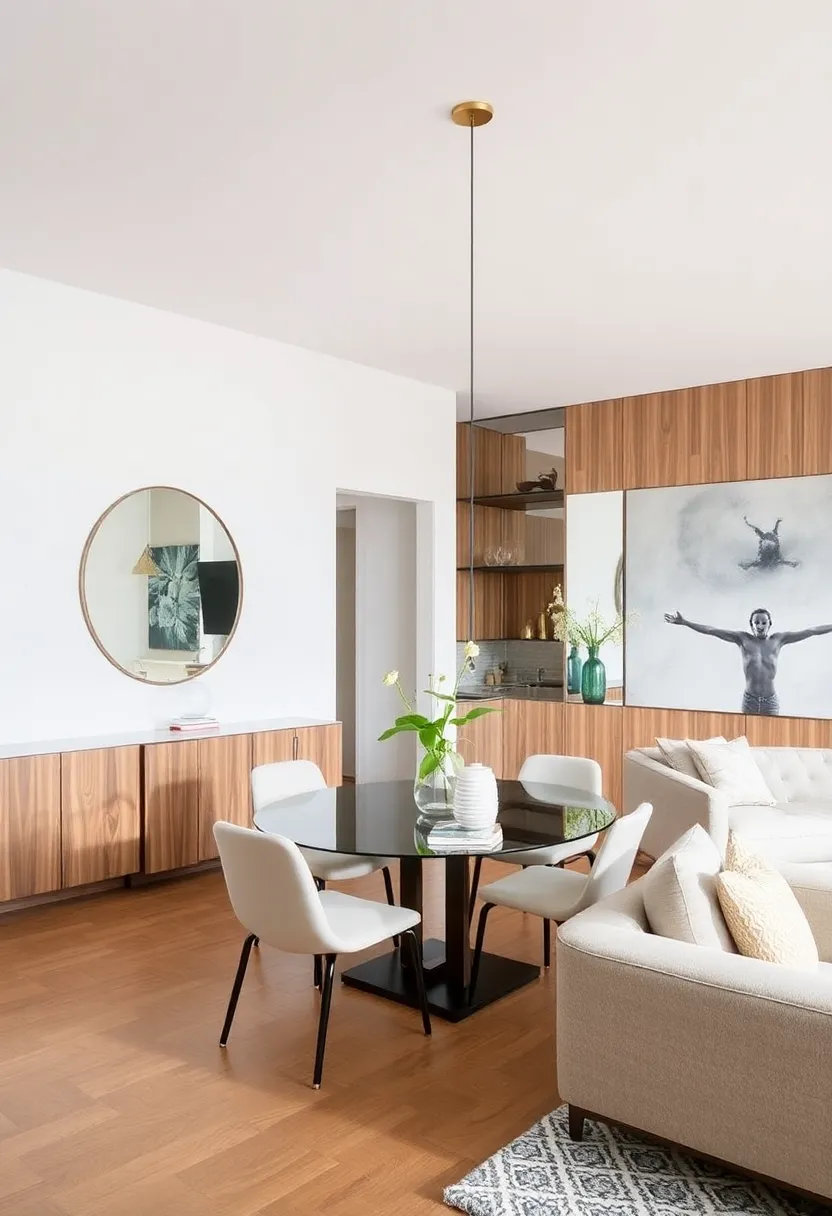
Incorporating mirrors into your open-concept dining and living areas can dramatically enhance the ambiance of your home.By positioning mirrors to face windows or light sources, you can maximize natural light, allowing it to bounce around the space and create an inviting atmosphere. Choose mirrors with captivating frames or unique shapes to not only reflect light but also become artistic focal points. As an example, a large, round mirror above a sideboard can draw the eye and reflect the beauty of your dining setup while opening up the area visually.
To further establish a sense of depth, consider mixing various sizes of mirrors on different walls. This layering technique offers an added dimension, making your space feel expansive and decluttered. Experiment with the following placements for optimal effect:
- Opposite Windows: Placing mirrors directly across from window light sources doubles the brightness.
- Above Furniture: Position mirrors above key furniture pieces, like sofas or buffets, to create harmony.
- In Corner Spaces: Utilize tall or angled mirrors in corners to extend views and add a touch of elegance.
family-Friendly Fabrics: Address the balance between style and practicality with durable, washable fabrics that stand up to the hustle and bustle of daily life
When designing a family-friendly living space, the choice of fabrics plays a crucial role in achieving both sophistication and functionality. Performance fabrics have made a name for themselves in modern interiors, boasting the ability to repel stains and resist fading, making them perfect for households with children and pets. Look for materials like microfiber, which not only feels comfortable but also withstands the wear and tear of daily use. Additionally, outdoor fabrics, frequently enough treated to resist moisture and mildew, can bring a touch of elegance while offering remarkable durability in high-traffic areas.
Beyond durability, the aesthetic appeal of your fabric choices can elevate your open-concept design. Opt for fabrics in neutral tones or soft patterns that can seamlessly blend with various decor styles and color schemes. You can also explore textured options like boucle or chenille, which add depth without compromising on practicality. For a balanced look, consider incorporating a mix of fabrics in your throw pillows, curtains, and upholstery. Here are some popular fabric options and their standout features:
| Fabric Type | Key Features |
|---|---|
| Microfiber | Soft, stain-resistant, easy to clean |
| Denim | Durable, offers a casual vibe, fades beautifully |
| canvas | Sturdy, perfect for upholstery, available in various colors |
| Outdoor fabric | Mold and mildew resistant, water repellent |
Integrated Technology: Explore how smart home technology seamlessly fits into your open-concept layout, enhancing the convenience and functionality of the space
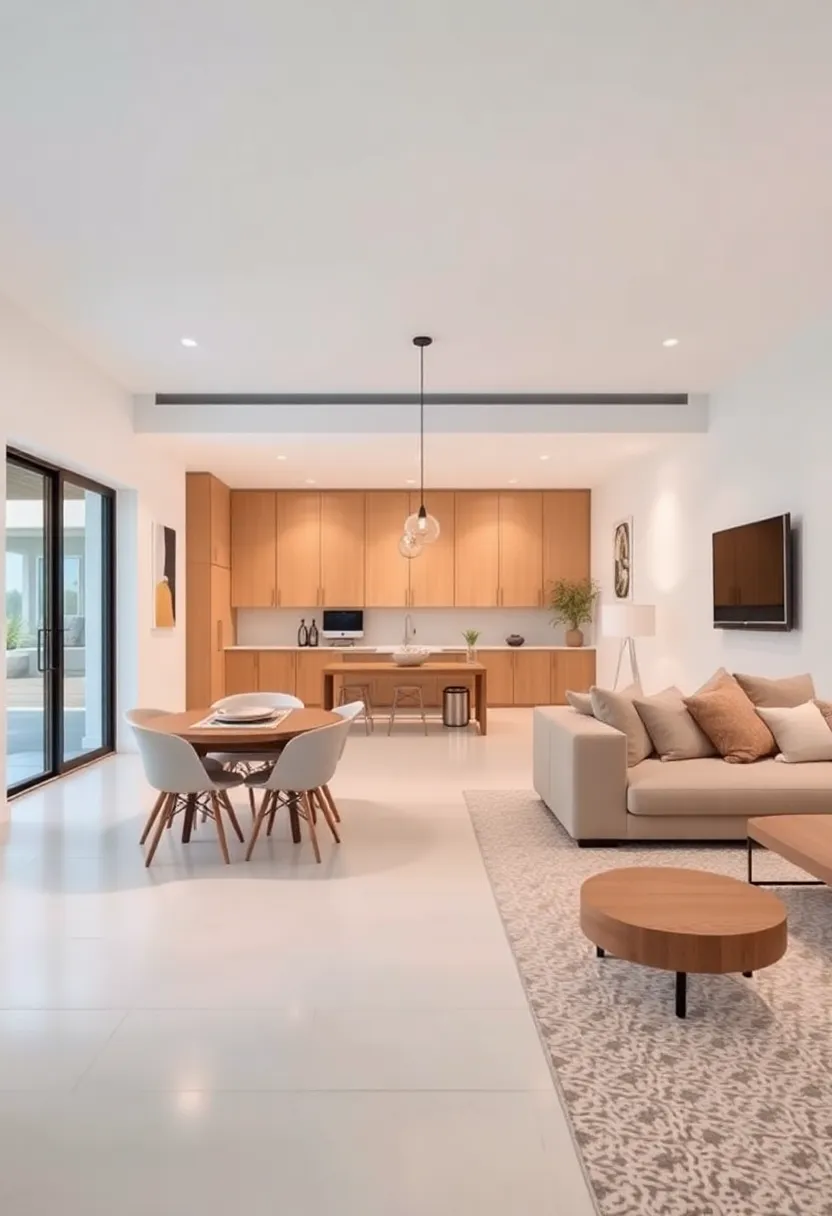
incorporating smart home technology into your open-concept living and dining areas elevates both aesthetic appeal and practicality. With devices that blend seamlessly into your decor, technology enhances your daily routines without overpowering the design. Imagine controlling your lighting, temperature, and security systems with a few taps on your smartphone or through voice commands, all while preserving the airy atmosphere of your space. Smart speakers can provide music or respond to inquiries while sitting unobtrusively on a shelf,reinforcing the inviting mood of your living area.
Moreover,the integration of automation helps create distinct zones within the open layout while maintaining a cohesive environment. You can program smart blinds to adjust according to the time of day, optimizing natural light and ensuring privacy in shared spaces. Consider the convenience of wireless charging stations built into furniture or countertops, allowing you to keep devices powered without cluttering your space with cables. By harmonizing technology with design,you not only enhance functionality but also foster a lifestyle that is as elegant as it is indeed efficient.
Artistic Wall Treatments: Delve into the world of wall treatments—like reclaimed wood or bold wallpaper designs—that can visually differentiate areas while maintaining openness
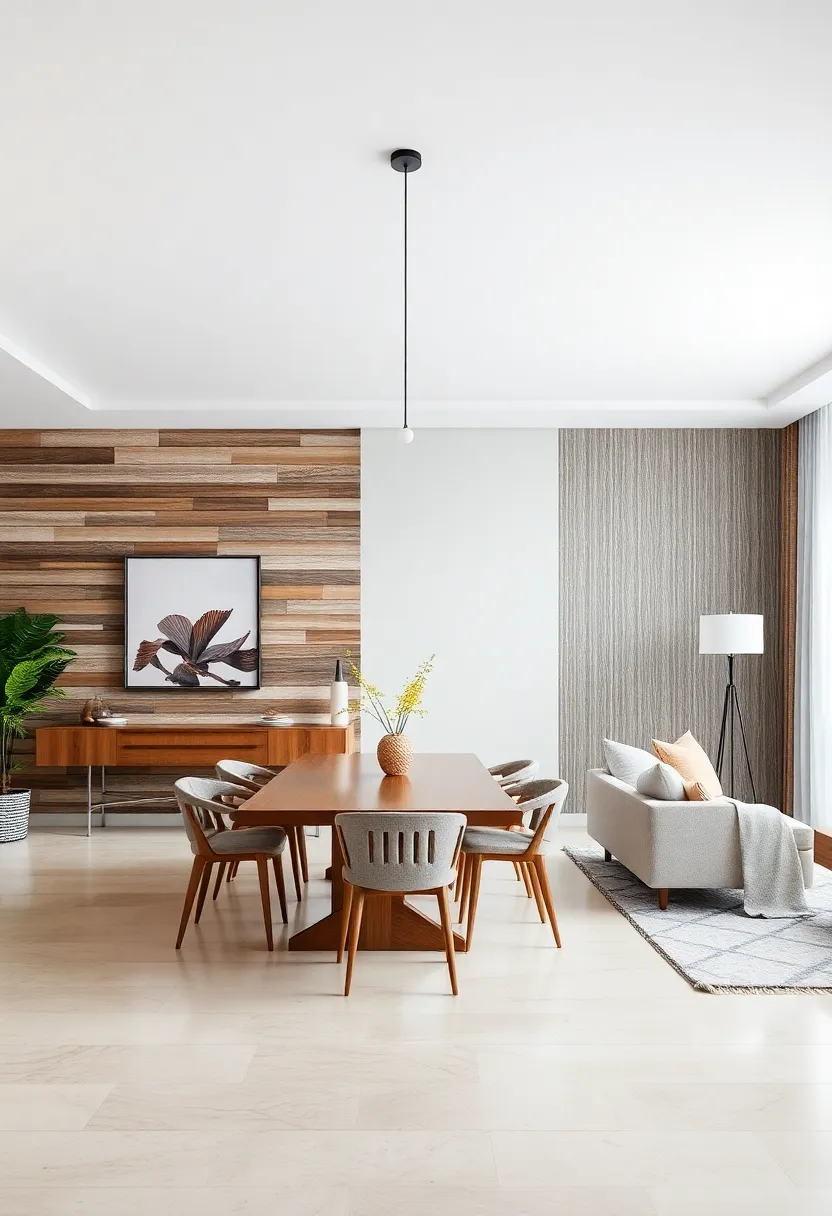
Revamping your walls can breathe new life into your open-concept spaces, offering visual segmentation without sacrificing flow. Consider the warmth of reclaimed wood, which not only adds a rustic charm but can serve as a natural divider that delineates the dining area from the living room. This organic texture creates a cozy atmosphere while echoing enduring design principles. Alternatively, experiment with bold wallpaper designs; striking patterns or vivid colors can transform a wall into a stunning focal point, drawing attention and fostering conversation. Wallpaper murals depicting serene landscapes or vibrant cityscapes can invite storytelling and serve as a unique backdrop for your gatherings.
To creatively utilize wall treatments, reflect on the use of paint techniques or wall textures that can enhance the aesthetics of the shared space.As a notable example, a two-tone wall design not only showcases personality but can visually narrow down the different areas of the room. You might also explore acoustic panels that double as art, providing both sound absorption and a functional, stylish look. These treatments encourage openness while maintaining a distinct sense of space. Here’s a quick overview of ideas to inspire your next wall transformation:
| Wall Treatment | Effect |
|---|---|
| Reclaimed Wood | Warmth & Natural Charm |
| Bold Wallpaper | Visual Impact & Focal point |
| Two-Tone Paint | Defined Spaces & Style |
| Acoustic Panels | Sound Control & Artful Design |
Warm and Inviting Textiles: Bring comfort to your space with soft throws and decorative cushions that add warmth and personality without sacrificing openness
Incorporate a sense of coziness in your open-concept space with a selection of soft throws and decorative cushions. These textiles not only serve as visual accents but also provide tactile comfort, making your living and dining areas feel more inviting. Choose a color palette that complements your decor—think earthy tones like rust and olive green, or go for light pastels for a fresh, airy look.Layering different textures, such as knit throws and velvet cushions, can also create depth, adding an element of interest that enhances the openness of your layout.
When selecting your textiles, consider the following options that can seamlessly blend style with comfort:
- Chunky Knit Throws: perfect for draping over a chair or sofa, adding warmth and visual texture.
- Silk Cushions: A touch of luxury that elevates the overall aesthetic of your space.
- Printed Fabrics: inject character into your room with cushions that feature fun patterns or graceful florals.
- Reversible Options: Maximize versatility by choosing cushions that offer two designs in one.
Vintage Meets Modern: Celebrate eclectic designs that skillfully blend vintage furniture pieces with modern touches, creating a unique open-concept ambiance
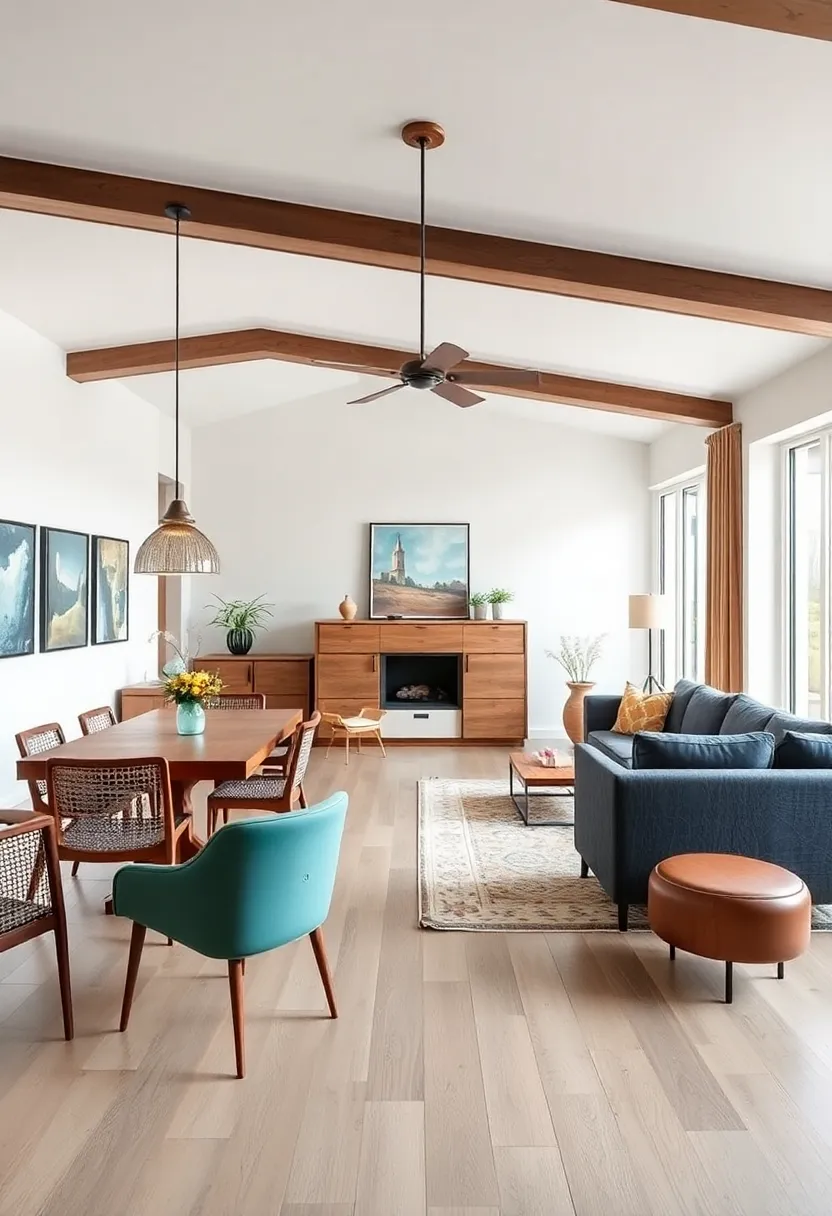
Imagine a living space where the charm of the past seamlessly intertwines with the sleekness of contemporary design. By incorporating vintage furniture pieces such as a rustic reclaimed wood dining table or a plush mid-century armchair, you can infuse warmth and character into your open-concept layout. Paired with modern accents like minimalist light fixtures or geometric art, the result is a stunning visual dialogue between eras that invites conversation and curiosity. Consider using a statement piece, such as an antique sideboard, to anchor the room, while surrounding it with modern decor that emphasizes clean lines and subtle colors.
The key to mastering this eclectic style lies in balancing contrasting elements. Choose a color palette that harmonizes both vintage and modern pieces for a cohesive look. Incorporate textiles like vintage kilim rugs under contemporary glass coffee tables, providing texture without overwhelming the space. For an added touch of personality, introduce a gallery wall that features a mix of contemporary art and framed vintage posters, creating a dynamic focal point that highlights the interplay of both styles. Through thoughtful curation and design choices, your open-concept dining and living area can be transformed into an inviting haven that celebrates the rich dialogue between vintage and modern aesthetics.
Open-Concept in Small Spaces: Discover clever design strategies that make open layouts work beautifully in compact apartments or smaller homes
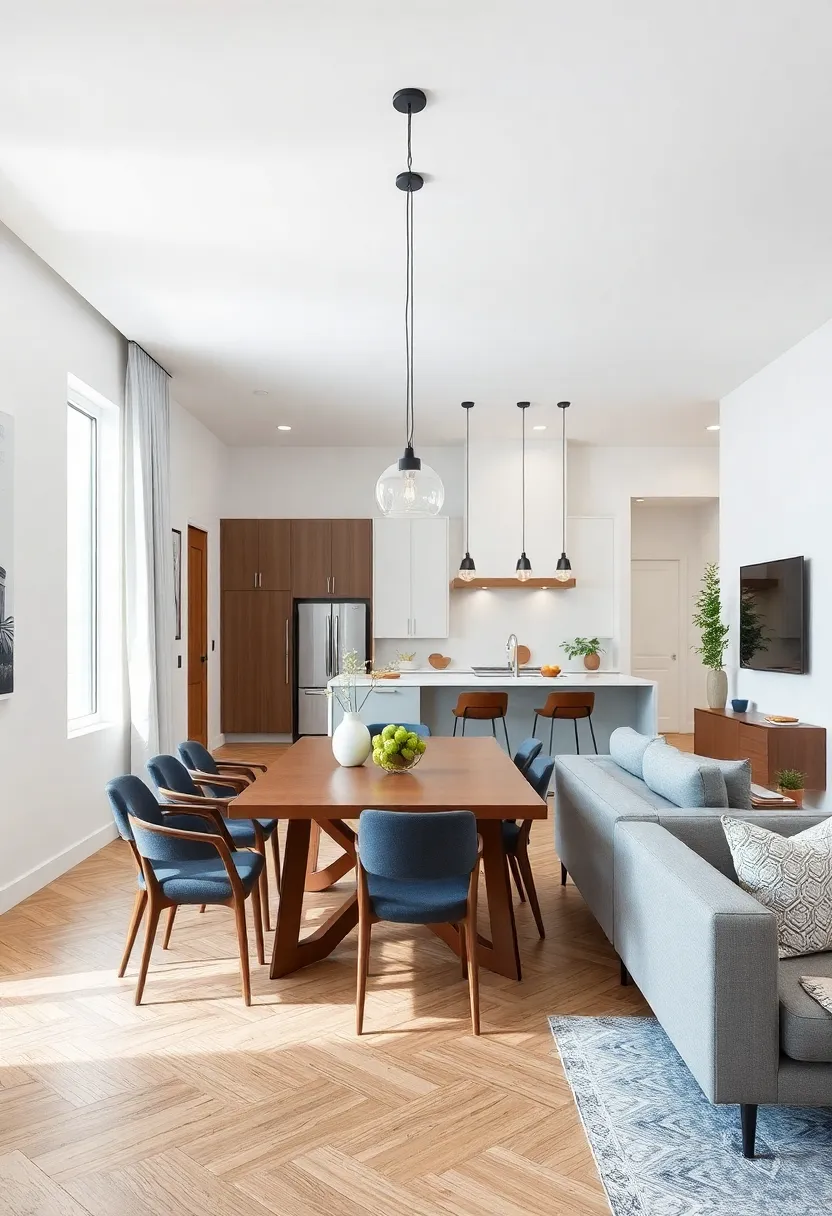
Embracing an open-concept layout in smaller spaces can be a game-changer when it comes to maximizing functionality and creating a sense of airiness. To make this design choice work effectively, consider integrating multi-functional furniture such as a dining table that doubles as a workspace or a sofa bed for guests.To delineate spaces without the use of walls, explore the use of area rugs and lighting to define specific areas while maintaining a cohesive flow throughout. Wall-mounted shelves and cabinets can also save precious floor space, enabling you to showcase decorative elements and essential items without overcrowding the environment.
Color and texture play crucial roles in enhancing the appeal of open living spaces. Go for lighter palettes to create an illusion of a larger area, or incorporate a bold accent wall to add character without overwhelming the senses.When it comes to decor, think about utilizing transparent or lightweight room dividers, like curtains or movable screens, to offer privacy when necessary while preserving an open feel. Keep in mind the use of mirrors to reflect light and enhance depth, making your compact living area feel expansive. Below is a simple table to visualize effective color schemes and textures that amplify openness:
| Color Scheme | Texture |
|---|---|
| Soft Whites and cool Grays | Glossy Finishes |
| Pale Blues and Soft Greens | Natural Fibers |
| Warm Neutrals | Light Wood |
| Accent Colors (e.g., Yellow or Teal) | Textured Fabrics |
Statement Lighting Fixtures: Highlight the use of oversized chandeliers or unique pendant lights that serve as artwork while illuminating your shared space
In the world of interior design, oversized chandeliers and unique pendant lights are emerging as more than mere sources of illumination; they are becoming focal points that transform open-concept spaces into works of art. These statement lighting fixtures bring not just warmth and brightness, but a distinctive character that can set the tone for the entire room. Consider installations with intricate designs or bold, geometric shapes that draw the eye and invite conversation. The juxtaposition of such striking pieces against minimalist decor can create a stunning visual balance, making your dining area feel both inviting and sophisticated.
Incorporating unique pendant lights can further enhance the aesthetic appeal of your living and dining space. Whether you select a cascade of small lights for a playful touch or a single striking piece that captures attention, these fixtures can serve as both functional lighting and artistic elements. Materials such as glass, metal, or even natural wood can be used to complement the overall decor—think of edison bulbs inside an industrial framework or colorful glass shades paired with rustic finishes. Additionally, the right placement can accentuate architectural features like high ceilings or wide-open areas, ensuring that your lighting works in harmony with the layout of the space.
Celebrating the View: Discuss the importance of aligning your layout to take full advantage of stunning views from windows, seamlessly connecting indoors and outdoors
In any open-concept space, aligning the layout to maximize breathtaking views can create an atmosphere of tranquility and connection to nature. By positioning furniture to face windows, you not only highlight the stunning scenery outside but also foster a sense of flow between the indoor and outdoor environments. Consider using elements that emphasize the view, such as low-profile furniture that won’t obstruct sightlines or reflective surfaces that capture and amplify natural light. This thoughtful arrangement not only enhances aesthetic appeal but also promotes a feeling of spaciousness, making any gathering more enjoyable.
To further enhance the integration of your interior with its surroundings, incorporating large sliding doors or bi-fold windows can create a seamless transition to outdoor spaces. This design choice invites fresh air and sunlight while blurring the lines between inside and outside. When selecting decorative items or artwork, choose pieces that echo the natural palette outside your windows, whether it’s rich greens, vibrant floral hues, or soft sky blues.Additionally, consider the strategic use of plants to connect the two environments, creating a lush, organic aesthetic. With these considerations, your living and dining areas can become a sanctuary that celebrates the beauty of nature, enriching daily life.
Dining as a Social Hub: Rethink your dining area as a central gathering spot by choosing a design that encourages relaxation and conversation among family and friends
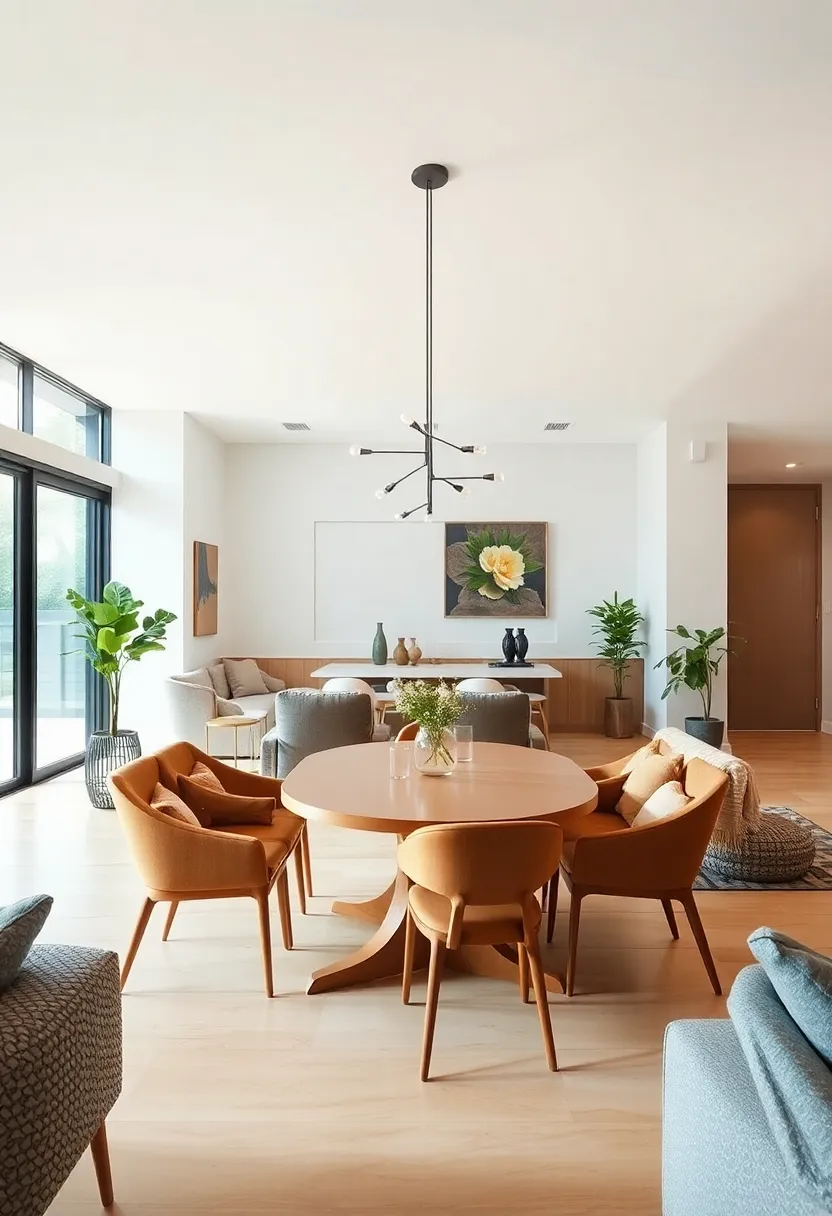
Creating a dining area that serves as the heart of your home invites warmth and fosters connections among family and friends. To achieve this inviting atmosphere, consider incorporating elements that prioritize comfort and conversation. Use large, communal tables that encourage shared meals and engaging discussions. Surround them with cushioned seating options, like upholstered benches or stylish dining chairs, which offer a cozy touch. Don’t forget to use soft lighting—such as pendant lights or dimmable fixtures—to set the mood and make the space feel welcoming.
Along with comfort, think about how the layout can encourage interaction. Arrange furniture in a way that promotes easy flow and accessibility.As a notable example, placing a comfortable armchair or a small coffee table nearby can create a cozy corner for casual chats. Additionally, incorporating decorative elements like an open shelving unit can help bridge the dining and living areas while showcasing personal touches, such as artwork or family photos. This seamless connection not only encourages harmony between spaces but also fosters a more lively and engaging dining experience.
Seasonal Decor Styles: Uncover tips for easily switching up your décor with the seasons, ensuring your open-concept space always feels fresh and inviting
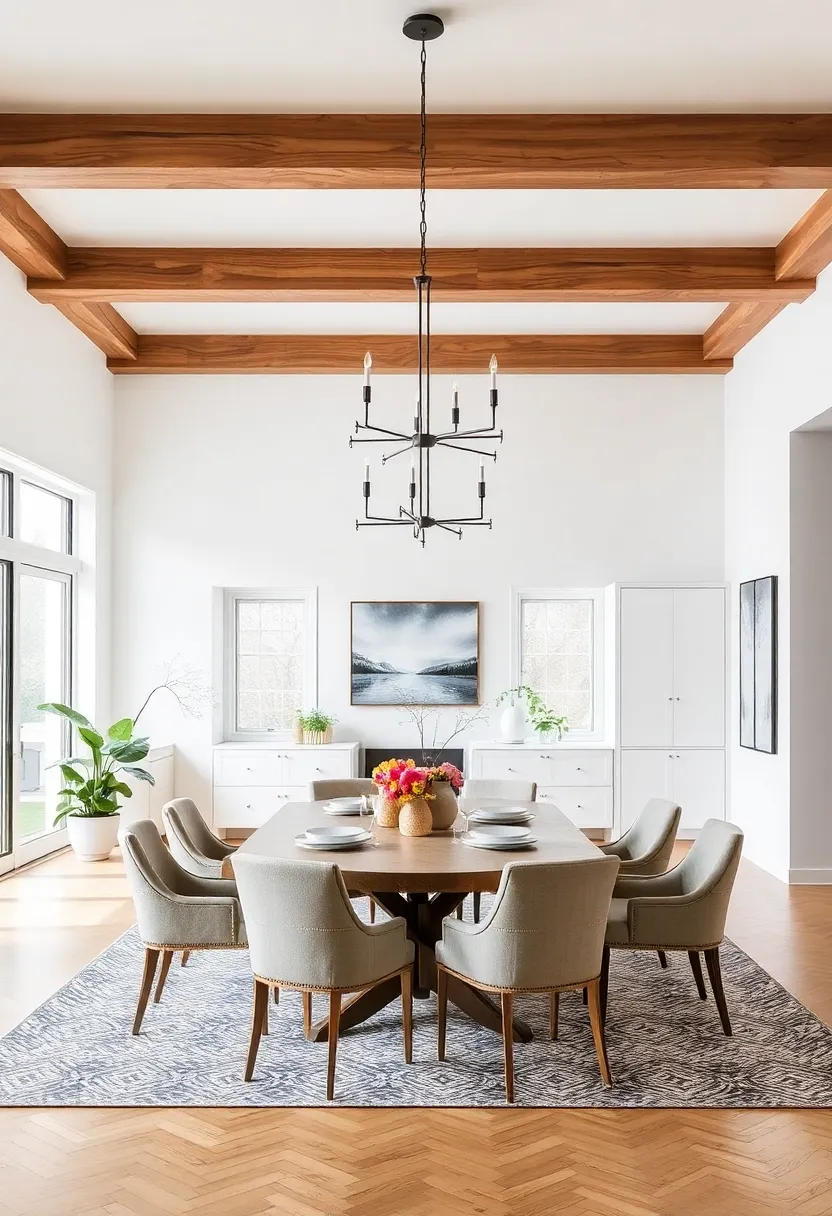
Transforming your open-concept space with the seasons is an enjoyable endeavor that breathes life into your home. Consider starting with a color palette that reflects the current season. For instance, in spring, opt for soft pastels and floral accents, while warm, earthy tones in autumn can create a cozy atmosphere. Use textiles such as cushions and throws that can easily be swapped out, adding seasonal flair without a complete overhaul. Embrace nature by incorporating seasonal elements like pinecones in winter or seashells in summer.These small touches can effortlessly tie your décor together, enhancing the welcoming vibe of your living and dining areas.
To further elevate your seasonal décor, think about your lighting. Warmer, dimmable lights during fall and winter can cultivate a snug ambiance, while brighter, cooler lighting in spring and summer can make the space feel open and refreshing. Use decorative centerpieces that reflect the season: a pumpkin display for autumn dinners or a vibrant fruit bowl in the summer. Consider creating a simple table using the following ideas:
| Season | Centerpiece Idea | Textile Tips |
|---|---|---|
| Spring | Flower arrangements | Pastel cushions |
| Summer | Fruits and seashells | Bright throws |
| autumn | Pumpkin displays | Earthy textiles |
| Winter | Evergreen branches | Warm, woolen fabrics |
Closing Remarks
As we close this exploration of 29 inspiring open-concept dining and living room layouts, we hope you’re brimming with ideas to transform your own space. Each of these designs showcases the beauty of open spaces—where light flows freely, conversations spark effortlessly, and each square foot feels alive with potential.
Whether you’re drawn to a minimalist aesthetic, a cozy family gathering spot, or an elegant entertaining area, these layouts serve as a canvas for your creativity. Remember, the heart of your home is where you create memories, and an open-concept design can foster connection and warmth.
Take the insights and inspirations you’ve gathered here, mix them with your unique style, and let your imagination guide you. happy decorating!
